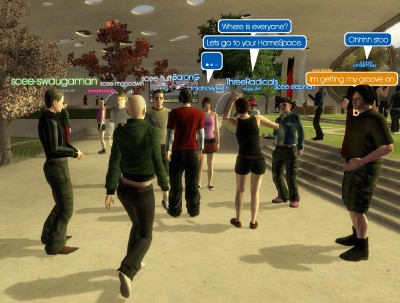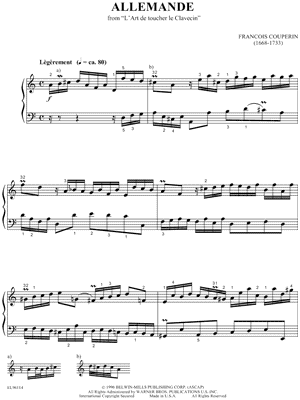
Yesterday I read this moving and disturbing meditation by someone suffering from ALS (Lou Gehrig’s Disease): “Night” by Tony Judt
This one I actually read in the “meat” world as William Gibson calls it (the non-cyber world). It does put one in a frame of mind about how people handle life crises.

I keep running into people who are in the middle of these things. No one I am related to, I hasten to add. But people dealing with death and impending death. Tough stuff. Just yesterday a young person I know seemed especially glum. “What’s the matter? Weather getting you down?” “My Grandpa died this weekend. He was old and it was time for him to go, but it’s still hard.” I bumbled through condolences. I don’t think it matters much what you say to people grieving, just that you are there with them.

This morning I got up and happened upon two articles about Facebook. I’m still reading the second of these “Grizzling about Facebook” [link]. I was surprised that it seemed so superior to the first one from New York Review of Books. The author is Meaghan Morris. According to her online bio she is somehow simultaneously Chair Professor of Cultural Studies at Lingnan University, Hong Kong, and Professor in the Department of Gender and Cultural Studies at the University of Sydney.

She is brilliant I think. Here’s a sample that plunged me into thought:
“…]J]ournalists often draw on their rich professional reserves of reductively metonymic realism (‘setting the scene’, the ‘character sketch’) to cast social network users as types whose ways of acting are symptomatic or productive of diverse social ills: alongside terrorists and sexual predators there are always students uploading their mobile pics of boorishly drunken parties, ‘stupid girls’ sharing every detail of their vapid daily routines, and workers who boast about bludging but forget that they’ve friended their boss. As in folklore, each of these figures is sustained by a dense field of concrete examples both stellar (Hugh Grant and Bono for Facebook party uploads, MySpace’s Paris Hilton or Twitter’s Ashton Kutcher for cosmic triviality) and ‘it-could-be-you’ mundane (Kyle Doyle’s ‘SICKIE WOO’ Facebook status update).Simultaneously grounded in and abstracted from the real history of on-line culture, such figures ‘stick’ in media memory, powerfully eliciting recognition (the party animal, the princess, the slack worker) while drawing attention away from a myriad other practices thriving on the sites. Stereotypes are forms of apprehension rather than bad representations, and their force is to mobilize familiar knowledge to explain and absorb unfamiliar experience (Morris, Identity 143-44).
I had to look up both “bludging” and “metonymic.”

The former means lying about with no particular purpose and seems to to be an Australian elocution. The latter means a reference to something or someone by naming one of its attributes. (from meta , “change” and onoma, “name”). I do like the phrase: “reductively metonymic realism.”
And the idea that stereotype is rooted in a mild form of fear is helpful to me, since I am often on the receiving end of such reduction.

One colleague years ago said that people had trouble with me because I am hard to typecast, because I don’t fit easily into a mold. This was a helpful thing to hear.

So even as people frown in my direction or look at me uncertainly as they sometimes do here in holy old Holland, I try to remain as cheerful and friendly as possible.

The other Facebook article was “In the World of Facebook” [link] by Charles Peterson in the upcoming New York Review of Books. I read that one online in its entirety.
Here’s a sample from this article:
“What is “social networking”? For all the vagueness of the term, which now seems to encompass everything we do with other people online, it is usually associated with three basic activities: the creation of a personal Web page, or “profile,” that will serve as a surrogate home for the self; a trip to a kind of virtual agora, where, along with amusedly studying passersby, you can take a stroll through the ghost town of acquaintanceships past, looking up every person who’s crossed your path and whose name you can remember; and finally, a chance to remove the digital barrier and reveal yourself to the unsuspecting subjects of your gaze by, as we have learned to put it with the Internet’s peculiar eagerness for deforming our language, “friending” them, i.e., requesting that you be connected online in some way…”

This article has some history of Facebook which was informative to me.
A third article I have bookmarked to read is called “The Music Instinct” by Philip Ball [link]. I found it on one of my favorite online resources Arts & Letters Daily [link] where they aroused my curiosity by saying “Is music “cheesecake for the mind,” as Steven Pinker put it? Well, if you can show that Homo sapiens has a deep emotional need for cheesecake..”

This leads me into the boring music stuff in today’s post. Yesterday I had a revelation about French Baroque music. Specifically about playing unequal notes (notes inégales) and the tempo of suite movements called Allemande (which is French for German).

I was rereading Francois Couperin’s L’Art de Toucher de Clavecin in an attempt to understand what he had marked an Allemande to be played quickly.

I have understood the Allemande suite movement as generally a slow movement. My deceased teacher, Ray Ferguson, taught me to play Francois’s Uncle Louie (Couperin) and other French Baroque organ music as well as Francois Couperin’s music and taught me when to do inegale and when not to. Intrigueingly the Allemande I was looking at was not only marked to be played quickly but without inegale.

After some listening to a recording [link to a wonderful page of MP3s of an expert Harpsichord player] and doing some of my own playing, I began a major reconsideration of Couperin’s suites for Harpsichord.
I noticed that in his writing he says that he indicates unequal playing with slurs. Then I noticed pieces that I have performed in which there are slurs just in a few places. I think this may mean that the rest of the piece should be performed in equal notes. This really changed a bunch of his music and I spent the day happily plunking away at pieces whose meaning was slightly different and became charmed all over again by Francois Couperin’s lovely keyboard music.
